Businesses Urged to Adopt Euro Changeover Ethical Code
ZAGREB, 21 July 2022 - Businesses should adopt the euro changeover code of ethics and in the current circumstances no business should make "profiteering and speculative" moves, Prime Minister Andrej Plenković and Economy Minister Davor Filipović said on Thursday.
Presiding over the 16th session of the national council for adopting the euro as the official currency, Plenković said this was the first session since the final EU decision on Croatia's accession to the euro area on 1 January 2023.
In the final stage of introducing the euro, all mechanisms should contribute to creating a secure environment for consumers, which means that businesses should accede to the ethical code, he said.
In circumstances of inflationary pressures, he added, no business should make moves that are "profiteering and speculative and that are not in line with the moment and broad social responsibility."
"All actors in society must now show an element of social responsibility," Plenković said, adding that everyone must "understand that we must overcome the crisis together."
Adopting code of ethics as of 16 August
Presenting the code of ethics published last week, Filipović said it should contribute to a secure environment for consumers and to correctly converting and displaying prices, without unduly raising them.
It is intended for all financial and non-financial businesses doing direct business with consumers. Adopting the code is free and voluntary and will be possible via app from 16 August until the end of 2023. Filipović called on all businesses to adopt it.
As of 5 September, when prices must be displayed in both kuna and euro, citizens will be able to commend or complain via app about businesses that have not adopted the code, he said.
Croatia joining the world's most developed countries
Plenković said the accession to the euro area, to coincide with accession to Schengen, meant that Croatia was joining the most developed countries in the world and the EU.
Central bank governor Boris Vujčić said 420 million euro coins would be minted this year and another 230 million in 2023.
He said 350 million euro bills were being procured and that banks, post offices and the Financial Agency would be supplied with bills and coins as of early October, while citizens and businesses would be supplied as of 1 December.
The demanding job of adjusting ATMs will begin in December, Vujčić said. Some will have kuna until the last day of the year, while some will be adjusted so that they can issue euros as of 1 January. As of 15 January, all ATMs should issue euros.
Finance Minister Marko Primorac said 60 laws would have to be aligned in fast track, starting from 25 August.
For more, check out our business section.
Croatia in 2027: What Will the Country Look Like in 5 Years?
July 20, 2022 - Life in Croatia is mostly about remembering the past or living in the present, but when it comes to the future, what is it going to be like for Croatia in 2027? An overview of the things that will shape the country in the next five years.
It has been 31 years since Croatia declared its independence from Yugoslavia, 27 since the end of the homeland war, and 11 years since it completed its accession to the European Union. For those who have closely followed the development of Croatia as a country in those years, as well as those who were unaware of it, the feeling of surprise is shared. Objectively, the vast majority of people I know have expressed their amazement at the growth of Croatia when they see my photos and videos on Instagram, or when they read my articles on this portal. Some may consider them clueless, but the truth is that many believed that Croatia was just another country in Eastern Europe, torn apart by war and struggling to recover.
Few imagined that Croatia is currently one of the main tourist destinations in the world, with leading technology companies such as Rimac, or one of the safest countries on the planet. Many countries in the world have also gone through bloody independence processes or intense armed conflicts that have left them on the brink of economic, political, and social abyss. But with a population of no more than 4.7 million in 1995, Croatia's growth and development have been remarkable. Although it is worth mentioning the international support received in the last three decades, the resilience and determination of its population have been indisputable pillars in this process.
The country continues to go through constant changes, and some, in particular, seem to be decisive in speculating on what awaits around the corner. Just as we look back to analyze the evolution of the country, the positive and negative of its present, we ask ourselves, what lies ahead for Croatia in the next five years? We go over a few things to see what Croatia will look like in 2027.
Euro currency
This Monday, Croatia began producing its euro coins, which will enter circulation from January 1, 2023, replacing the kuna. As part of its accession to the European Union in 2011, among the conditions was the eventual change of currency to the euro, and last year the Croatian government announced that it would take place in 2023. Despite a strong rejection by the part of the population, in recent months this change has received the green light from different institutions such as the European Commission or the European Central Bank. Change is inevitable, and today some supermarkets are already displaying the prices of their products in both kuna and euro currencies.
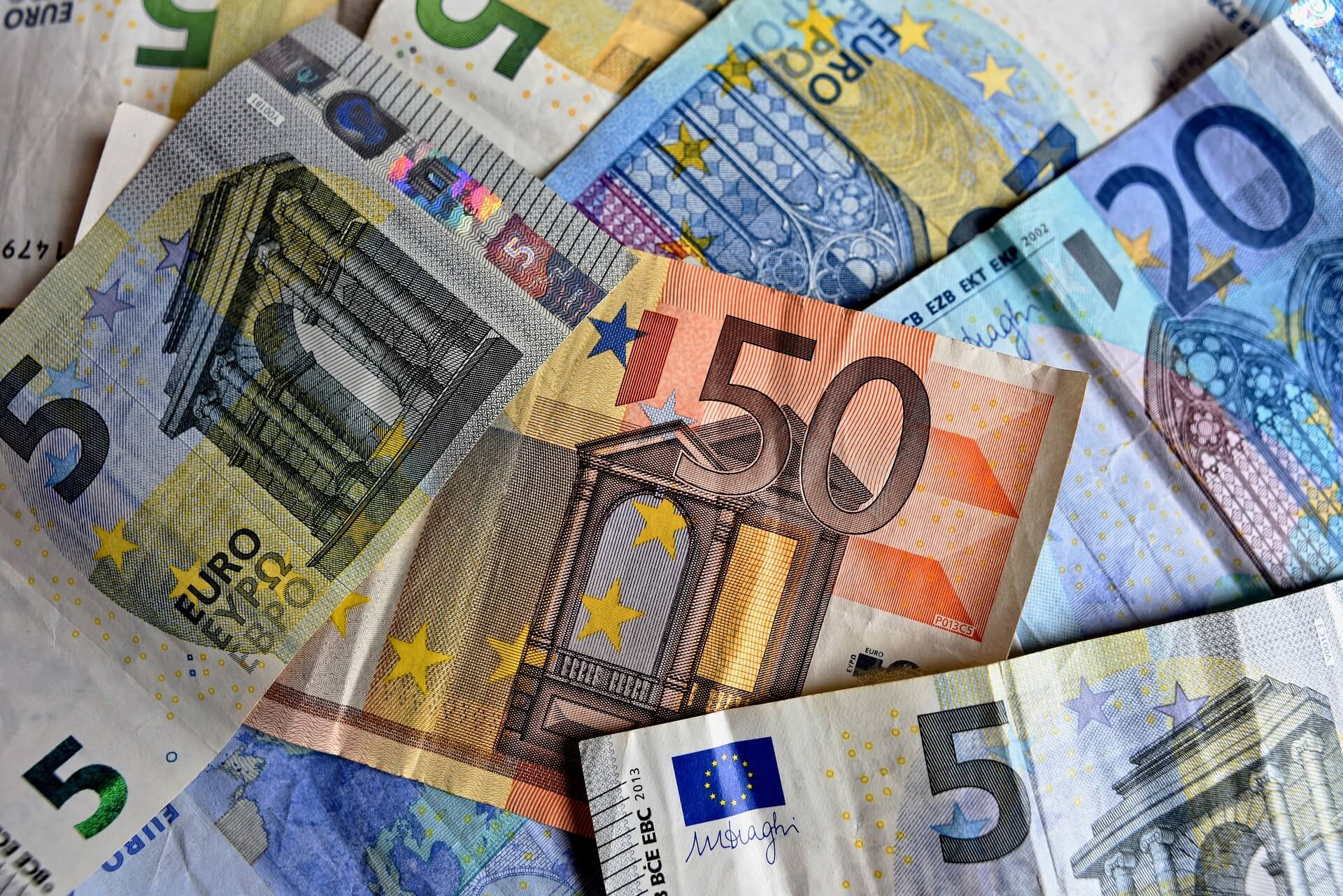
Image: Pixabay
Opinions are diverse. There are those who welcome the arrival of the euro as a way to strengthen economic relations with other powers on the continent, others believe that it will not affect the country in a positive or negative way, and many believe that it will plunge the country into a crisis and radically raise the costs of living. How will Croatia fare in the future with the euro as the new currency? Only a seasoned economist could dare to speculate, but perhaps it is the expectations that matter. In a country plagued by an imbalance between salary conditions and the cost of living, the European Union is expected to require Croatia to match the standards of other member states in the future. Changes in the prices of basic products and services, or the shift from using more coins instead of bills, are considered by many to be minimal changes compared to other macroeconomic trends, but they should still be considered in the first years and in what way it will affect the middle-class Croatian citizen and those mired in poverty.
The comparison is daring, but countries like Italy with the lira, France with the franc, Spain with the peseta, or Germany with the mark, had to go through the process of change that at first was confusing for many, but today, almost twenty years later, it is part of everyday life in those countries.
Schengen area
On June 29 of this year, the Council of the European Union formally initiated the process of admission of Croatia to the Schengen area, currently composed of 26 European countries. In previous years, many political leaders on the continent expressed their support for Croatia joining the Schengen area, and finally this year a vote will take place in October in which 22 member states (with the exception of Switzerland, Iceland, Lichtenstein, and Norway as they are not members of the EU and do not have voting rights) will decide on Croatia's accession. Once approved, Croatia will become the 27th country to access the benefits of such admission, in the same year that it will adopt the Euro as its currency.
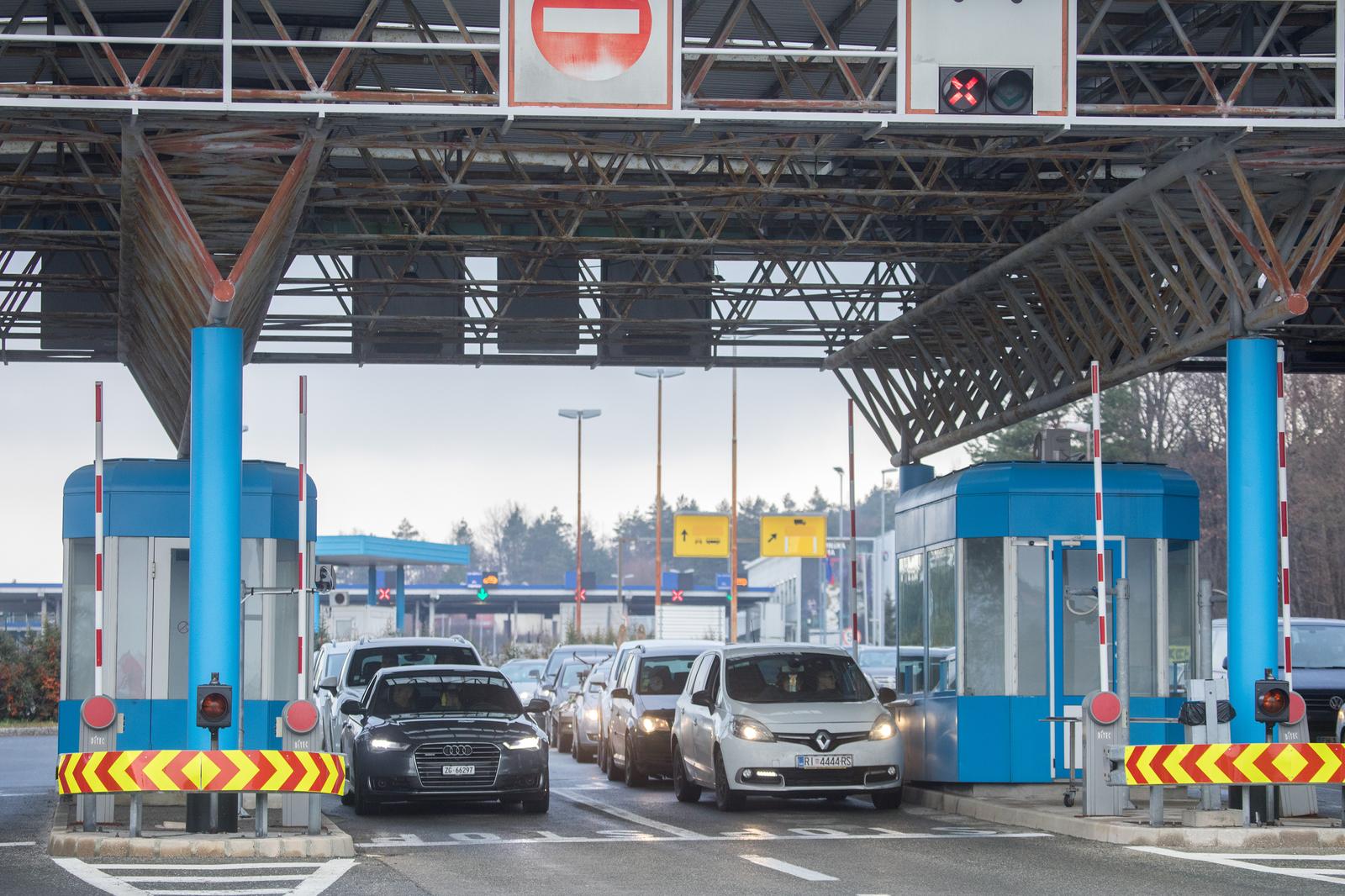
Photo: Nel Pavletic/PIXSELL
Should there be no unforeseen obstacles, all kinds of border controls will be lifted in Croatia starting on March 26, 2023, which will simplify travel to and from Croatian airports, sea ports, and land borders. For instance, passengers traveling from Croatia on direct flights to destinations in the member states of this area (26 European countries), after checking in for the flight and security control, will go to the exit for their flight without crossing the border or police control. This change is expected to have a positive effect on tourism trends in the coming years, especially in a country like Croatia, with a large annual presence of visitors from countries such as Slovenia, Germany, Austria, Denmark, Poland, Sweden, and the Netherlands during the summer season.
Croatian trains
Unfortunately, unlike the previous two points, when it comes to the future of trains in Croatia there is still no revolutionary project announced. Although it is true that the sad reality of the trains in the country was already known, in recent weeks various news have been published that make it even more evident. From poor connectivity between cities to excessive travel times, to even drivers who were late for sleeping at home. Bus travel and airports continue to support the local and international transport market in Croatia, but expectations for a better train system are rising with time. Tourists and local users alike expect train travel to be modernized, and soon.
The geography of the country is not an excuse since other rugged countries such as Italy or Austria have most of their cities and towns connected to each other by very fast and modern trains. Time will tell whether Croatia decides to modernize its existing lines in the next few years, or whether it decides to add more trains connecting coastal cities as well as from west to east. At the moment there is no clear horizon, but it is an urgent issue.
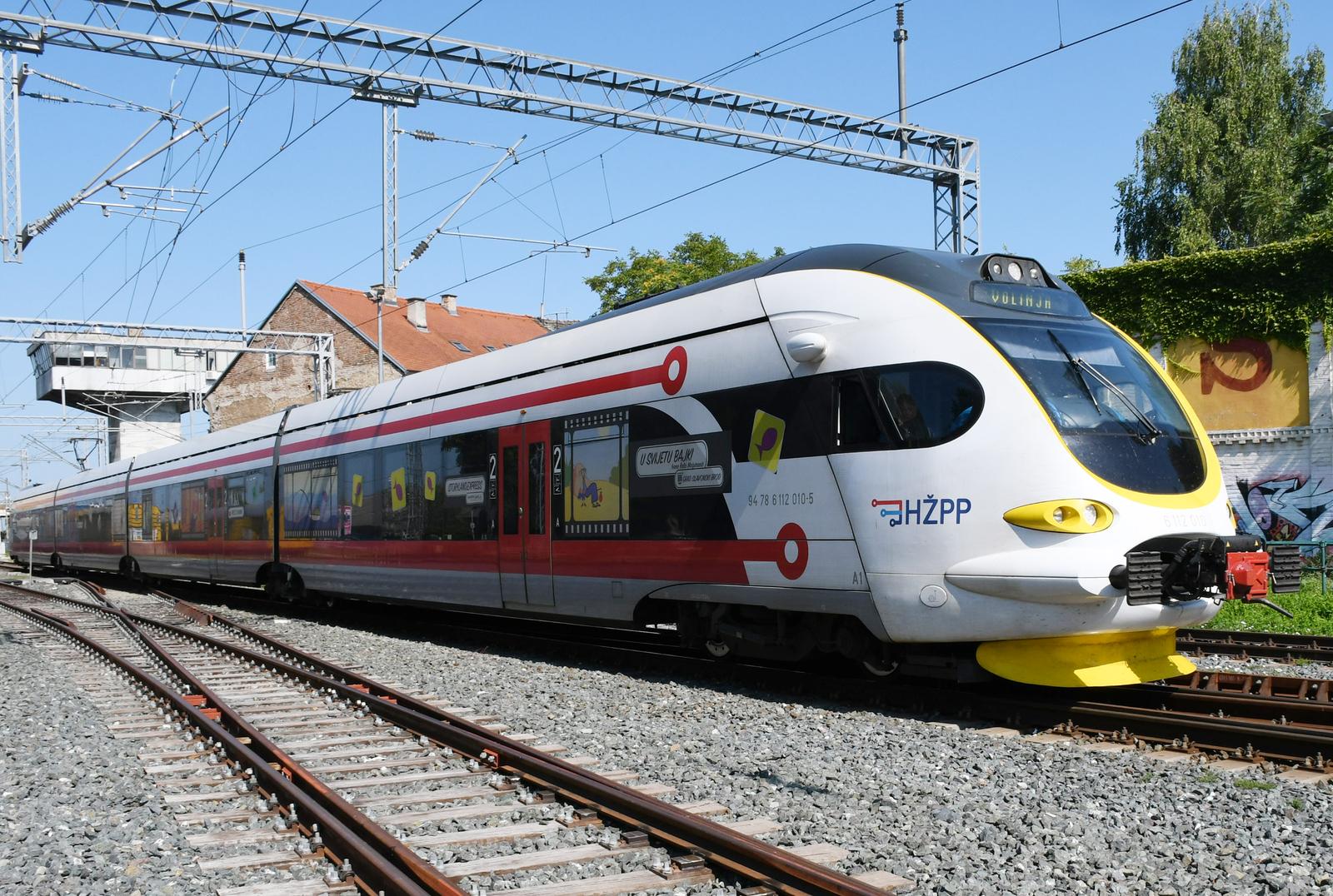
Photo: Nikola Cutuk/PIXSELL
Population
The most recent census was conducted last year, and the results raised a lot of eyebrows. Much has been said in the last decade about the never-ending phenomenon of migration of young Croatian professionals in search of better job opportunities in other countries on the continent, or even outside Europe. However, the situation seems to have worsened even more and this has been manifested in the last official count of the country's population. The youth of the country continue to look abroad once they receive their degree, and there are plenty of reasons considering the low wages and the limited job offers.
Some blame the ease for Croats to migrate to other European countries due to their membership in the EU, but the truth is that it is becoming increasingly difficult to convince a Croat to stay.
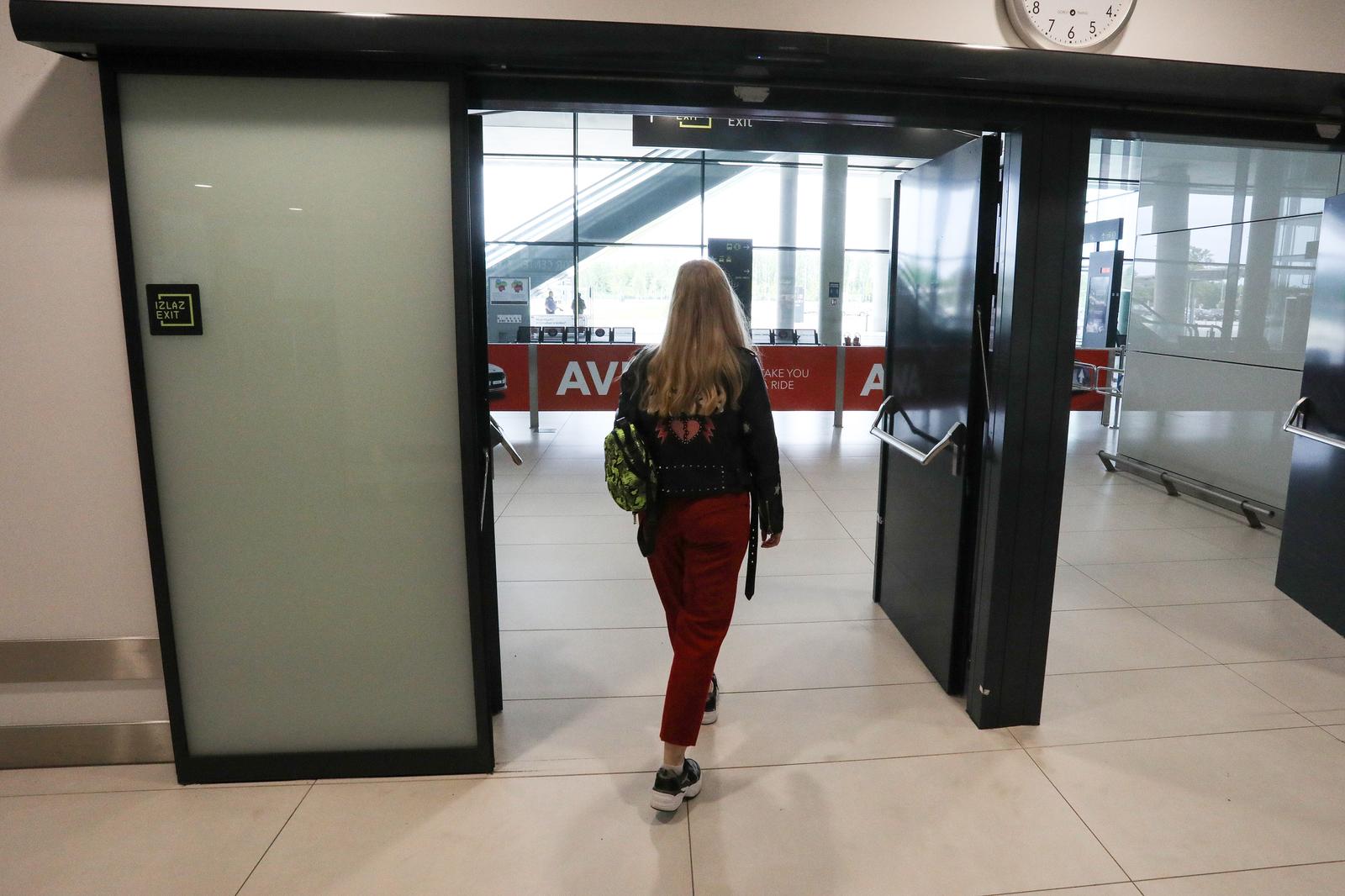
Photo: Borna Filic/PIXSELL
If the cost of living in the country manages to find a balance over time with salaries, labor supply, and working conditions, it is likely that the trend will reverse, but for now one can only speculate. On the other hand, it is important to recognize the increase in Croatian citizenship applications by citizens who belong to the Croatian diaspora, especially those who come from South America. The current situation in several countries of the South American continent, such as Argentina or Peru, has motivated young people and adults to bet on a change of scenery, with a great willingness to take on the challenge of repatriation and offer their skills in Croatia. It has always been talked about how it is that the majority of the Croatian population lives, in fact, outside the country, but this factor must be seriously taken into account in the coming years, which would also invite us to think about a more diverse Croatian population.
Tourism
The COVID-19 pandemic has made many in the country reflect on the enormous dependence of the Croatian tourism industry on international flights. Everyone involved in the tourism sector was deeply affected: hotels, restaurants, tour agencies, tour guides, private accommodation owners, transport companies, and more. Likewise, citizens who dedicate themselves entirely to tourism have felt a severe blow to their own economy, realizing that those two or three months of income should not be so essential for them in order to survive the other nine months of the year. The name of the game for the next few years is diversification.
The public and private sectors have to come together to look for alternatives, even if a chance of another pandemic is unlikely. Istria, for example, showed the importance of being a destination that can be reached by car. Likewise, it is necessary to bet on tourist offers during the winter, especially in a country that boasts good weather and cultural events throughout the year. This and more will help the country stop depending so much (and dangerously) on the summer months.
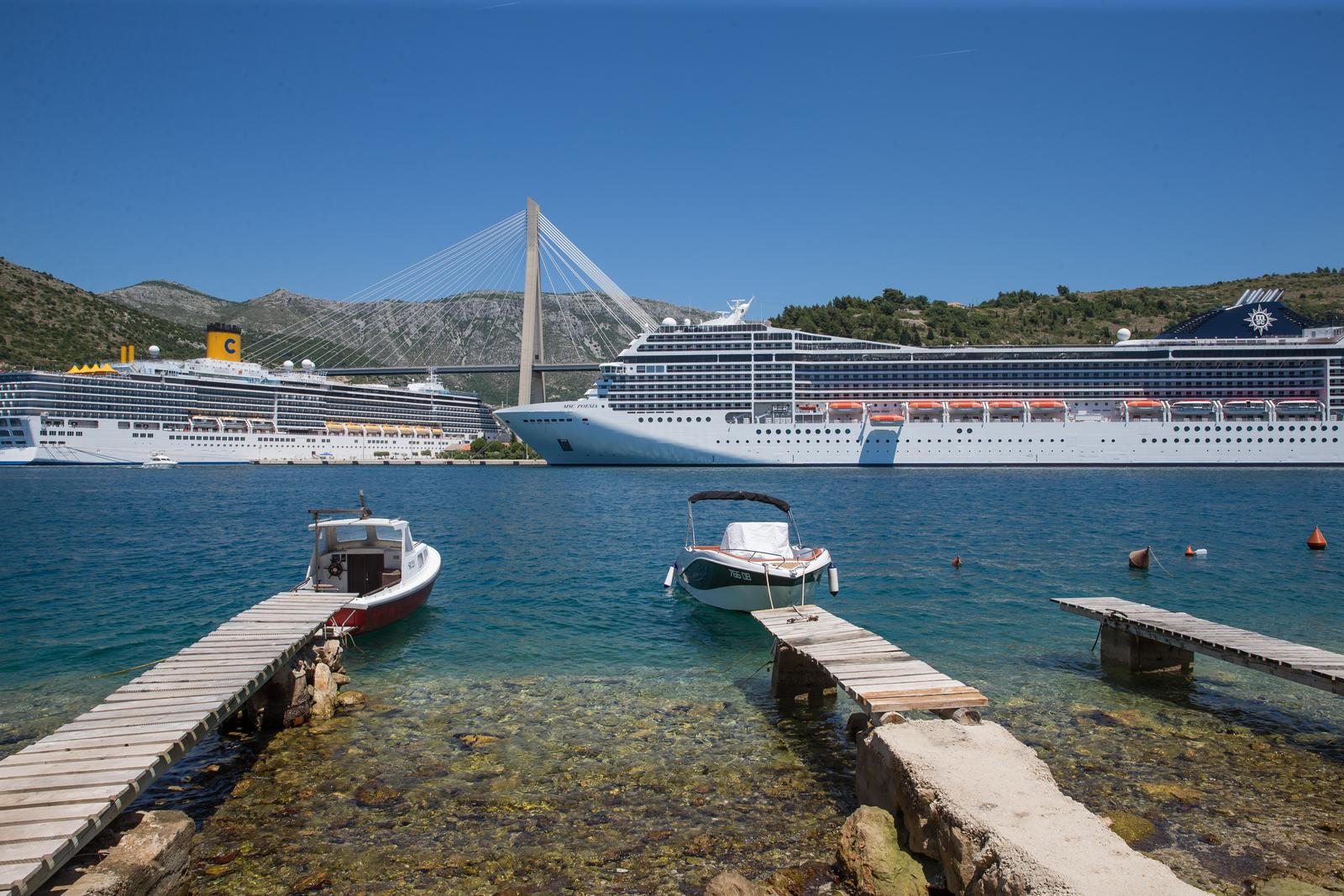
Photo: Grgo Jelavic/PIXSELL
Another issue to consider is overcrowded tourist destinations during high seasons, such as Split or Dubrovnik. While it may not sound like much of a concern to those in the tourism industry, the truth is that at the end of the day, tourism is all about experiences. The experience of not being able to walk down an alley in the old town, not having a place to lie down on a beach, not finding an available table in a restaurant or exaggerated accommodation prices can only be a negative and will affect the promotion of the country in the short term, if they are not already doing so. Limiting the arrival of cruise ships, regulating private accommodation, and promoting other tourist destinations more strongly should be some of the goals that the tourism industry, both in the public and private sectors, should set for improving the quality of the tourist experience in Croatia in the next years.
For more news about Croatia, click here.
Website www.euro.hr With Information About Euro Adoption Launched
ZAGREB, 12 July 2022 - The Croatian government and National Bank (HNB) on Tuesday activated the www.euro.hr website with all necessary information about the euro adoption as soon as the European Union's Ecofin completed the process of decision-making on welcoming Croatia to the euro area on 1 January 2023.
The website will be updated on a regular basis.
The HNB says that the general public, businesses, media outlets, and all interested parties can access the website to get information about the determined conversion rate of the kuna for the euro, dual display of prices, motifs of the euro coins minted in Croatia, the image of the euro banknotes and deadlines for the replacement of kuna banknotes and coins with the euro, and consumer rights in the changeover process.
For more news about Croatia, click here.
Ministry Issues Ethical Code for Changeover to Euro
ZAGREB, 11 July 2022 - The Ministry of Economy and Sustainable Development on Monday released the code of ethics for the process of switching to the euro at the start of 2023, and all business entities that interact with consumers are called to join the code.
Croatia will enter the euro area on 1 January 2023 after it met all the convergence criteria, the ministry recalls.
The ministry notes that the transition from the national currency to the euro is an important topic that raises many questions, and definitely, a part of consumers are also concerned about possible price rises.
The ethical code has been compiled in a bid to create a safe environment for consumes and to make sure that the changeover from the kuna to the euro will be conducted in a reliable and transparent manner.
In December 2020, the Croatian government and the national bank (HNB) announced the release of an ethical code for the introduction of the euro in the document titled "the National Euro Changeover Plan".
The document reads that "retailers and other service providers will be invited to abide by the ethical code for the introduction of the euro, and will be able to participate in the campaign organised by the Ministry of Economy and Sustainable Development in cooperation with business associations.
For more, check out our politics section.
European Parliament Supports Croatia's Accession to Eurozone
ZAGREB, 5 July 2022 - The European Parliament supported Croatia's accession to the euro area by a vast majority of votes on Tuesday.
With 539 votes in favour from 632 MEPs in attendance, the European Parliament adopted the report on the introduction of the euro as legal tender in Croatia as of 1 January 2023, saying that Croatia met all the criteria for accession to the euro area.
Forty-eight MEPs abstained form the vote and 45 voted against, mostly those from right-wing political groups who criticised Croatia's euro-area membership bid during discussion at a plenary session of Parliament on Monday.
Before an EU member state joins the euro area, the European Parliament gives its opinion on the recommendation from the European Commission. The last step is the adoption of the proposal at a meeting of the Economic and Financial Affairs Council on 12 July. The European Council has already endorsed Croatia's euro area entry.
By adopting the euro, Croatia will join the Eurosystem, which comprises the European Central Bank and the central banks of the euro-area member states. The Croatian National Bank governor will sit on the Governing Council of the European Central Bank.
The Croatian finance minister will participate in Eurogroup meetings and the prime minister will attend euro-area summits. Croatia will also automatically become a member of the banking union, a bank supervision and resolution system.
The report by European Parliament rapporteur Siegfried Muresan of the European People's Party (EPP), which was adopted on Tuesday, says that "Croatia fulfils all the criteria for adopting the euro as a result of ambitious, determined, credible and sustainable efforts by the Croatian government and the Croatian people."
The report notes that Croatia’s accession to the euro area is the first significant EU integration process after Brexit and that it should enhance the positive image of the European Union in the Western Balkans region.
"Notwithstanding the difficult socio-economic situation generated by the health crisis and the most recent increase in energy prices, Croatia's adoption of the euro and the fulfilment of the necessary criteria represent a strong political signal of the viability and attractiveness of the single currency of the Union," the report says.
Adoption of the euro will strengthen Croatia's economy and benefit its people and companies, as it will make the country's economy more resilient, attract more foreign investment, increase the confidence of international investors and cut down currency exchanges, that will have a relevant effect in the country's vital tourism sector, the European Parliament predicts.
The Croatian government was called upon to ensure that the introduction of the euro does not lead to artificial price increases.
"Croatia joining the euro area represents a strong political signal of the viability and attractiveness of the single currency of the Union. Twenty years after the introduction of the first banknotes, the euro is a symbol of European strength and unity. Thanks to its great commitment in its efforts to meet the conditions for adopting the euro, Croatia is now ready to join the euro area on 1st January 2023, less than a decade after joining the EU. The euro area as a whole will then welcome its twentieth member," the European Parliament said in an explanation of its favourable assessment of Croatia's readiness to adopt the euro.
For more, check out our politics section.
Croatia Could Get Positive Assessment on Euro Introduction on 1 June
ZAGREB, 23 May 2022 - The European Commission plans to issue a convergence report on 1 June which could give Croatia a final assessment on its readiness to adopt the euro.
European Commission Executive Vice-President Valdis Dombrovskis on Monday confirmed that the Commission plans to release its convergence report on 1 June.
"In Croatia debt ratios have declined significantly over the years and show a strong downward trend. This sends an important signal ahead of the convergence report that we will present on 1 June. As you know, Croatia aims to adopt the euro as its currency on January 1, 2023," Dombovskis told a press conference.
In its analysis of the macroeconomic situation in Croatia, the Commission notes that the country has made progress in reducing private debt and net external liabilities. It underscores that public debt remains high but continues its downward trend towards the situation prior to the COVID-19 pandemic. The banking system remains stable and liquid and the share of bad loans is decreasing. The potential for production growth has increased and funds under the Recovery and Resilience Mechanism can help deal with other vulnerabilities, the Commission says.
The Commission publishes its convergence report every two years. According to the last report in June 2020, Croatia had fulfilled all the criteria to enter the euro area except for membership of the European Exchange Rate Mechanism (ERM II).
Croatia soon met that criterion too, when it entered the ERM II on 10 July 2020.
The readiness to introduce the euro is determined according to convergence criteria, including price stability, regulated public finances, exchange rate stability, and convergence of long-term interest rates. National legislation is checked against the rules of the Economic Monetary Union (EMU).
Currently, the inflation rate is the only uncertain criterion at the moment. It must not exceed by more than 1.5 percentage points the average inflation rate of the three EU countries with the lowest annual inflation in the year preceding the assessment of the situation in the candidate country.
If Croatia gets a positive assessment, the finance ministers of the 19 euro area countries need to adopt the Commission's recommendation with a qualified majority.
The formal decision is delivered by Ecofin, comprising all EU finance ministers, after consultations with the European Parliament and following the June summit of EU leaders.
For more, check out our politics section.
Marić: Total Cost of Introducing the Euro About HRK 2 Billion
ZAGREB, 9 March 2022 - The cost of adapting the system to introduce the euro currency will cost about two billion kuna, Finance Minister Zdravko Marić revealed during a debate on the euro currency bill in the Sabor on Wednesday, underscoring that the positive aspects of that process outweighed the negative ones.
"We need to introduce the euro as soon as possible because Croatia is a highly eurorised country. Introducing the euro will mean a higher credit rating and hence lower interest rates. The business community also supports the euro, and being part of the euro area will better protect us in times of crisis," Marić said in response to concerns raised by lawmakers that introducing the euro would be an additional shock to citizens.
"When looking at the pros and cons of the euro, the balance is tipped towards the positive effects," Marić said.
He revealed that the total cost of adapting the entire system to the euro would cost about HRK 2 billion.
He said that consumer protection mechanisms have been foreseen and that in addition to dual prices, supervision would be conducted to prevent any unjustified price increases.
In those countries where the euro was introduced prices were rounded off, which meant an average increase of between 0.2 to 0.4 percentage points, while other inflationary pressures not related to euro introduction will be addressed by the government through measures to buffer the shock, Marić explained.
As far as the criteria regarding inflation are concerned, Croatia will meet them, he underlined.
Marić noted that the exchange rate to replace the kuna has been set at 7,5345 kuna for one euro and that it won't slide more than 15% up or down. The precise exchange rate will be known in July, he said.
For more information on Croatia's adoption of the euro, check out our dedicated business and politics sections.
Lawmakers Discuss Introduction of Euro
ZAGREB, 9 March 2022 - Before the start of a formal debate in the parliament on the government's proposal for the introduction of the euro as the official currency in Croatia, two parliamentary groups expressed their opposition to the proposal.
"Croatia is not ready to enter the euro area. Do not wander into the fog", Marijan Pavliečk of the Croatian Sovereignists (HS) told Finance Minister Zdravko Marić.
"Conduct structural reforms. Bring some order to public finances and then when we stand on our own feet, let the people decide in a referendum", Pavliček added.
Miroslav Škoro (ZPH) claimed that the Croatian economy is not ready to enter the euro area.
On the other hand, the leader of the Croatian Peasant Party (HSS) Krešo Beljak undoubtedly supports the changeover to the euro.
"That is the last stop on the Euro-Atlantic integration journey and that is something we wanted back in 1990 already and something we will all benefit from regardless", he said.
Beljak added that he hopes that in the meantime the euro exchange rate won't go crazy when the kuna is exchanged for the euro.
Dario Zurovec (Fokus) too appealed to his colleagues to consider the benefits of the euro. "These are times of an unstable market when the price of raw materials and energy are jumping. We need a stable currency and the euro is the second-most stable currency in the world", he underscored and recalled that the Croatians are saving in euro and that the price of real estate and cars are shown in euro.
"This is a natural course," said Zurovec ahead of a first reading of the bill on introducing the euro as legal tender in Croatia.
For more information on Croatia's adoption of the euro, check out our dedicated business and politics sections.
Croatia Set to Adopt Law on Euro in April 2022
ZAGREB, 10 Dec 2021 - Finance Minister Zdravko Marić said on Friday that the bill on introducing the euro currency in Croatia was being prepared and the draft could be outlined in mid-January while its final adoption could be expected in April next year.
In addition to that bill, it will be necessary to amend 46 laws and 70 by-laws prior to the euro changeover, Marić said at a conference on Croatia's accession to the euro area, organised in Rovinj by the Večernji List daily and Istria County authorities.
The blueprint for the euro adoption envisages that on 1 January 2023 Croatia ought to be ready to enter the euro area while the formal announcement of accession to the euro area is expected mid-2022.
"At that moment, Croatia will practically enter the final phase and the preparations for the euro changeover will have to be stepped up," said Marić and recalled that almost 1.1 billion coins and 500 million kuna banknotes have to be withdrawn and banks, post offices, Fina and companies need to be pre-supplied with sufficient euro coins and banknotes.
The financial sector will have to adapt and then there is one huge common task and that is to inform and protect consumers as an integral principle of the entire process.
Prices will have to be expressed in both currencies as of August next year and that should also help alleviate inflation pressure.
"As of 1 January 2023 we will change over to the euro overnight and then have another two weeks for both currencies in circulation and citizens will be able to continue to pay in kuna but after that payments will be in euro. The dual prices will remain for at least one year," he underscored.
"Prime Minister (Andrej) Plenković and (HNB) Governor (Boris) Vujčić and I are lobbying our European colleagues for Croatia to be the next country to enter the European monetary area. We all know that we have a highly eurorised society and economy. And the HNB too, is integrated into the European system of central banks, so it is natural to head towards what is stipulated in EU accession agreements," he said.
The conference further heard that despite some of the economic risks that may occur by relinquishing the national currency, changeover to the euro opens a series of economic opportunities.
For more on politcs, follow TCN's dedicated page.
Campaigners Have to Collect 368,867 Signatures for Euro Referendum Petition
ZAGREB, 24 Oct, 2021 - The Ministry of Justice and Public Administration sated on Sunday that the campaigners who are against Croatia's plan to switch to the euro have to collect at least 368,867 valid signatures for their petition for the referendum initiative "Let's Preserve the Kuna".
One of the conditions for calling a referendum is that at least 10% of eligible voters sign the referendum petition, and on 24 October, the ministry established that there were 3,688,671 eligible voters in the country's electoral rolls, which means that the 10% quota is 368,867.
The organising committee for the referendum initiative on the preservation of the kuna as the sole legal tender has already announced the start of its campaign to collect signatures for the referendum petition.
Currently, the euro (€) is the official currency of 19 out of 27 EU member countries which together constitute the Eurozone, officially called the euro area.
For Croatia's latest news, CLICK HERE.


